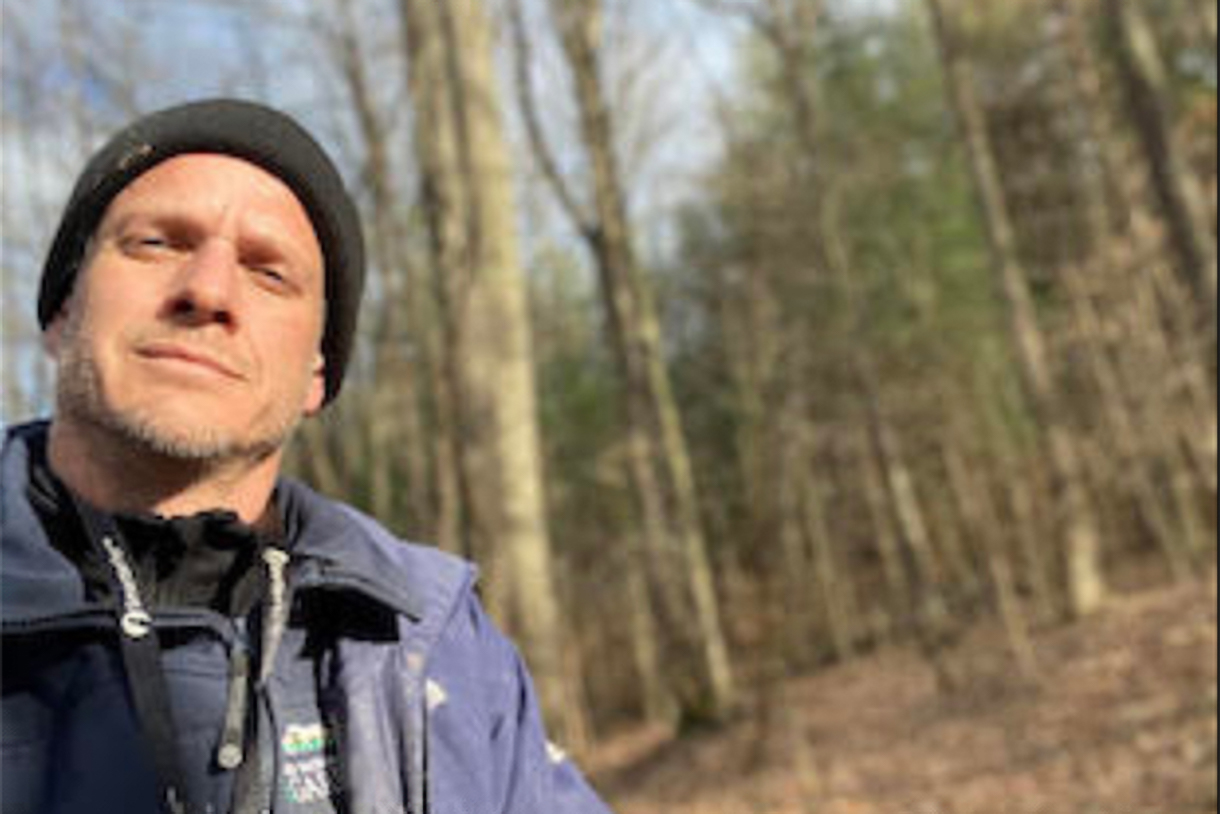Instructor Jason Stephens on the Power and Possibility of Documentary Filmmaking

When Jerod Draper was pulled over in a routine traffic stop on October 4, 2018, there was something wrong. He was under the influence and shouldn’t have been driving. The situation called for compassion, care, and treatment for the disease that had already cost Draper his family and his mental health. Instead, Draper was taken into custody, bound naked to a chair, and tortured in his restraints. He died as a direct result of the unnecessary violence inflicted by Southern Indiana law enforcement that night.
The story of Draper’s murder may have gone untold except for one thing: Draper’s cousin mentioned the incident to a friend, Filmmaker, Instructor, and Columbia Alum Jason Stephens. “[The story piqued] my interest both because it happened in the region of Southern Indiana [that] I now call home, and also because it was yet another example of law enforcement overreach and authoritative abuse,” Stephens says. This was a key example of the way that such abuse can affect anyone in any community, and investigating the events that occurred around Draper’s death might, Stephens hopes, provide a compelling call to action for others committed to ending police brutality and unchecked state violence.
Stephens, who served nine years on the Board of Directors at Kartemquin Films and who was deeply rooted in the Chicago filmmaking community, was uniquely positioned to tell Draper’s story in a way that could affect change. Together with Director/Producer Samuel-Ali Mirpoorian, Executive Producer David J. Cornfield, Executive Producer Linda A Cornfield, Co-Producer and Cinematographer Brenton Oechsle, and Composer Mark Crawford, Stephens created the New York Times-acquired documentary Safe Place, which investigates the murder of Jerod Draper.
“When I first heard about Jerod Draper’s story, I was horrified,” said director Mirpoorian. “Despite video of him dying after being repeatedly tased while restrained in a county jail, there has been no real accountability or criminal investigation into his treatment. It got me thinking if cases like this can go unnoticed, how many others are out there?” That question, and other ones like it, have long been the driving force behind Stephens’ interest in using his business acumen to support film and to enact social change. He hopes, through his classes, that his students will have the resources to be able to do the same.
Recalling his early days of teaching, after graduating from Columbia’s Arts Management program himself, Stephens says, “I found it to be particularly rewarding to be able to bring my real-world experience and knowledge to the classroom where I could help emerging arts managers and producers advance their careers.” After all, without a solid business plan, important films like Safe Place wouldn’t be able to find their audiences. That truth—perhaps an uncomfortable truth for many artists—is what makes Stephens’ curricular offerings at Columbia so crucial for artists in all fields. “Within [Business and Entrepreneurship], I have taught a broad range of subjects, mostly focused on the topics of economics, finance, and entrepreneurship, most in courses intended for a broad range of majors and interests, and some specifically focused on the film industry,” Stephens says. “My current focus is on data analytics and storytelling, which is still a relatively young field as applied to the arts industry, and which is poised to have a significant impact on it in the years to come.”
Today, Stephens is focused on teaching, securing additional distribution for Safe Place, and completing additional post-production on another documentary he had produced with Mirpoorian called Greener Pastures. He is also a producer for the Kartemquin film Waiting in Limbo which he describes as “another story of legal injustice out of Indiana.” To students interested in using entrepreneurial skills to advance their passions and to make positive change in the world, Stephens has an invitation at hand: “there’s a lot of advice I could give…come take my class.”